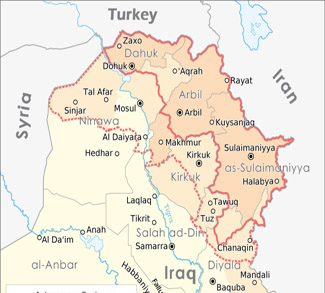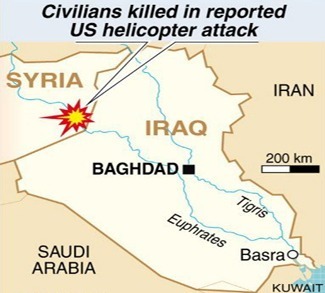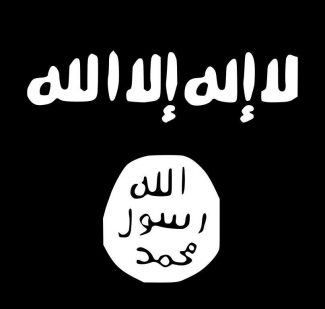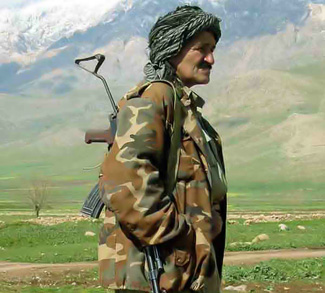This week’s cross-border mortar attack and subsequent artillery retaliation along the Syria-Turkey border seems to harken what many analysts have been predicting for a long time: violence from the Syrian civil war spilling its borders. The original mortar attack from the Syrian side of the border occurred on Thursday October 5th, striking the Turkish town of Akcakala and killing five Turkish citizens, including a woman and three children. Turkish armed forces then retaliated with a volley of artillery fire into the area of Syria where the mortar attack was thought to have originated.
The next day, the government in Ankara passed a motion in parliament authorizing the deployment of Turkish armed forces to Syria in the event of any future attacks. Turkish Prime Minister Tayyip Erdogan has asserted that the motion does not suggest a state of war between the two countries, but is rather an act of deterrence. These remarks are likely motivated by a desire to remain on the right side of Turkish public opinion however, which is overwhelmingly against a military escalation in what is fast becoming a strategic quagmire south of the border.
Prime Minister Erdogan’s comments ring true insofar that Turkey does not want a war with Syria, but there’s much more at stake here than just deterrence.
Ankara is well aware that the situation on Turkey’s southern border is likely to go from bad to worse in the coming months. As Syria continues its spiral into widespread disorder and sectarian violence, securing the southern frontier will become more and more of a challenge for Turkish authorities. Potentially destabilizing developments won’t just come in the form of large refugee flows, but also criminal elements and the concomitant drug and gun running that will thrive in a Syrian security vacuum.
In order to keep the chaos from jumping the border, Ankara wants to do what the UN has proved incapable of accomplishing and establish a safe ‘buffer zone’ between Syria and Turkey; albeit one that stretches out wholly on Syrian territory. This would insulate Turkey from instability spilling over from Syria by allowing for a more comprehensive policing of the Syria-Turkey border.
But this is not just a question of keeping undesirables out of Turkey- whether refugees, guns, drugs, or militants- it’s also about keeping Turkish Kurds from crossing into Syria. If nationalist Turks were bristling at the prolonged consolidation of Kurdish autonomy in northern Iraq, they’re outright alarmed now at reports of Iraqi Kurds flooding into the north of Syria and establishing control over areas along the border with Turkey. The threat of a consolidated Kurdish autonomous territory that spans from parts of northeastern Syria to northern Iraq would be interpreted as an existential threat by the Turkish state, itself with a population of around 12 million Kurds.
This is the very same threat has caused the Turkish military to step up its operations against the Kurdistan Workers Party (PKK) in northern Iraq. Fighting between the PKK and the Turkish armed forces in recent months has been some of the most intense since the PKK was formed 28 years ago.
The PKK is known to be operating in northern Syria as well, and the group remains an important strategic lever for Syrian President Bashar al-Assad. If Turkey were to become an active participant in the war against Damascus, the Assad regime could start arming PKK rebels and, depending how desperate he becomes, perhaps even offer lip service to the eventual realization of Kurdish autonomy within Syria.
Thus, the establishment of a border ‘safe zone,’ ostensibly under the pretense of guaranteeing Turkish security or controlling refugee flows, would have the effect of frustrating Kurdish attempts to establish a credible system of self-rule in the area. And in the eyes of the Erdogan government, the latter is by far the most pressing matter.




